Kinhtedothi - The Chinese market is very open but also very competitive for Vietnamese agricultural export enterprises. To be able to penetrate deeply into the domestic market and exploit this billion-people market, enterprises need to standardize the quality of agricultural products.
To get a multi-dimensional view of agricultural exports to China in recent times, reporters of the Economic and Urban Newspaper had a conversation with Dr. Ngo Xuan Nam - Deputy Director of the National Information and Enquiry Office on Hygiene, Epidemiology and Animal and Plant Quarantine (SPS Vietnam) under the Ministry of Agriculture and Rural Development .

When businesses "know themselves" and "know others"
From the beginning of 2024 until now, what are the notable points about agricultural exports in general and to the Chinese market in particular, sir?
- Since the beginning of the year, Vietnam's agricultural products have maintained a good growth rate, helping the total export turnover in the past 10 months of 2024 alone reach an estimated 51.74 billion USD, an increase of 20.2% over the same period in 2023. Of which, agricultural exports to the Chinese market accounted for 21.5% of the total value.
Notable highlights are two groups of goods with impressive growth, including rice and vegetables and fruits. In the first 10 months of 2024, Vietnam exported about 7.8 million tons of rice, earning 4.9 billion USD, an increase of more than 23%; the average rice price reached 626.2 USD/ton, an increase of 12% over the same period in 2023.
Meanwhile, Vietnam's fruit and vegetable export turnover in the first 10 months of 2024 reached 6.16 billion USD, up 27.8% over the same period last year. This is a record level achieved by the fruit and vegetable industry (in the whole year of 2023, the export turnover reached 5.6 billion USD, the highest in history up to that point).
Another noteworthy point is that the situation of Vietnamese agricultural products being congested and congested at the border gate with China has almost disappeared since the beginning of 2024. This shows that Vietnam's agricultural exports are complying with the strict requirements of Chinese customers in order to maintain a stable proportion of agricultural exports to this market.
It seems that Vietnamese agricultural export enterprises are taking full advantage of the Chinese market?
- According to statistics from the Vietnam SPS Office, there are currently more than 3,000 enterprises nationwide with about 3,545 agricultural and food product codes granted by authorities for export to China. Almost every month we record an increase in the number of enterprises registering product codes for export to China.
Agricultural products and food products exported by enterprises to China are also increasingly diverse. In addition to aquatic products, which account for the majority with more than 800 codes, there are also products of plant origin and nuts (400 codes), and deeply processed products (milk, bird's nest drinks, fruit juices)...
The good news is that most Vietnamese enterprises exporting agricultural products to China have been strictly complying with China's Regulations/Orders 248 and 249 regarding import conditions. Since the beginning of 2024, the Vietnam SPS Office has not recorded any cases of Vietnamese agricultural products and food being warned or returned due to violations of the country's food quality and safety regulations.
A bumper crop of agricultural exports is a positive sign. However, does that mean the difficulties are over, sir?
- Although Vietnamese agricultural products have not been warned or returned, there are still some enterprises that have encountered procedural problems when exporting agricultural products and food to China. The main reasons are that enterprises have not completed their documents, their business registration information is unclear, or their export codes have expired...
According to the Ministry of Agriculture and Rural Development, to date, Vietnam has had 14 agricultural products officially exported to the Chinese market, including: durian, bird's nest, sweet potato, dragon fruit, longan, rambutan, mango, jackfruit, watermelon, banana, black jelly, mangosteen, lychee and passion fruit.
Particularly, durian and dragon fruit from Vietnam are two products that are very popular with Chinese consumers; the import volume of these items from Vietnam accounts for about 1/5 of the total agricultural product imported from Southeast Asian (ASEAN) countries.
The lack of standardization of information causes disruptions in the export process. These are issues that businesses need to pay attention to, so that before exporting agricultural products and food, they need to review the product codes to ensure compliance with regulations.
I would also like to add that, currently, not only the Chinese market but also other importing countries frequently change or establish new regulations on quality standards and food safety. Therefore, Vietnamese enterprises need to constantly update regulations to avoid problems in the process of exporting agricultural products.
Keep your word to stay strong in the market
In reality, although we are maintaining a fairly good agricultural export to China, we have only reached the border provinces and have not gone deep into the interior. What do you think about this reality?
- That's right. China is a potential market for agricultural exports, not only for Vietnamese enterprises but also for other countries. This is reflected in the increasing number of domestic enterprises registering product codes for export to China.
However, as we all know, currently Vietnamese enterprises can only export agricultural products to border provinces and not deep into China. To go deep into the mainland, deep processing is required, while the amount of deeply processed agricultural products in Vietnam is currently not much.
What recommendations do you have for Vietnamese agricultural products to penetrate deeply into the Chinese market?
- Strengthening deep processing is the core solution. When the quality of agricultural products meets international standards, not only the domestic Chinese market but also any country, Vietnamese agricultural products can access. In the long term, this is very important, helping to enhance the reputation and brand of Vietnamese agricultural products.
To have a product that meets the standards, the prerequisite is to have a good raw material area. This requires businesses to co-manage, control, and monitor the quality of the raw material area. Raw materials of unknown origin and source have a high possibility of violating food safety regulations.
We also recommend that businesses regularly update market information and import regulations of China through the relevant authorities.
To gain a foothold in the Chinese market, what do you think Vietnamese businesses need to do?
- In agricultural trade, competition is inevitable, not only domestic competition but also with foreign enterprises. Therefore, to gain a foothold in the Chinese market, in my opinion, enterprises must maintain their "trust"; need to be cautious and flexible in transactions with partners in general, Chinese customers in particular, to maintain prestige and protect the brand of Vietnamese agricultural products in the international market.
Standardizing the quality of agricultural products should be considered a “compass” for the export activities of enterprises. Just one batch of agricultural products being warned or returned will greatly affect not only that industry but also the reputation and brand of Vietnamese agricultural products in general. Therefore, in any circumstance, we must always put “trust” first.
Thank you!
In April 2021, the General Administration of Customs of China issued Order 248 on “Regulations on the Management of Imported Foreign Food Production Enterprises Registration” and Order 249 on “Measures for the Management of Imported and Exported Food Safety”. These two orders will take effect from January 1, 2022. Foreign enterprises, including Vietnam, wishing to export to the Chinese market are required to comply with the new regulations.
The Vietnam SPS Office is the focal point for synthesizing notifications from World Trade Organization (WTO) member countries, including drafts and effective legal documents regulating food safety and animal and plant quarantine (SPS) that may affect Vietnam's agricultural exports.
Source: https://kinhtedothi.vn/chuan-hoa-nong-san-de-di-duong-dai.html






![[Photo] Prime Minister Pham Minh Chinh and Prime Minister of the Kingdom of Thailand Paetongtarn Shinawatra attend the Vietnam-Thailand Business Forum 2025](https://vphoto.vietnam.vn/thumb/1200x675/vietnam/resource/IMAGE/2025/5/16/1cdfce54d25c48a68ae6fb9204f2171a)



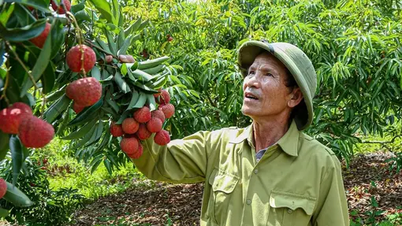

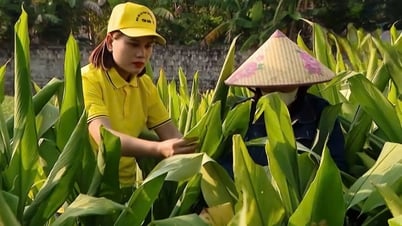




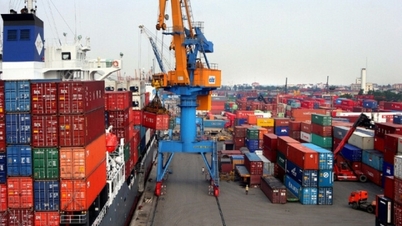




















![[Photo] President Luong Cuong receives Prime Minister of the Kingdom of Thailand Paetongtarn Shinawatra](https://vphoto.vietnam.vn/thumb/1200x675/vietnam/resource/IMAGE/2025/5/16/52c73b27198a4e12bd6a903d1c218846)



































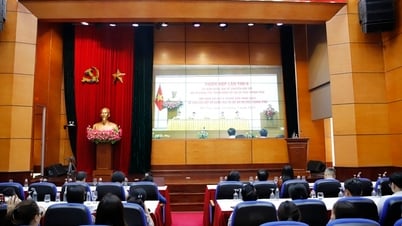






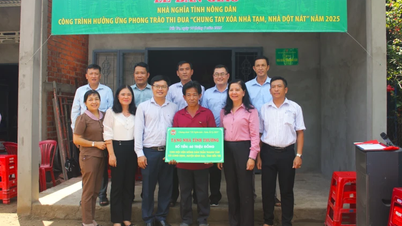

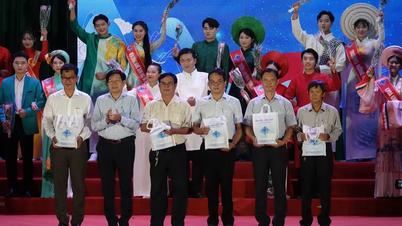



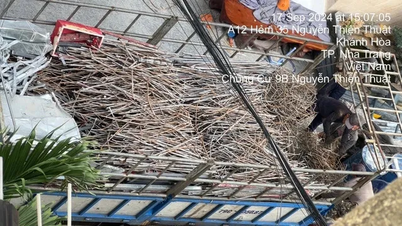









Comment (0)